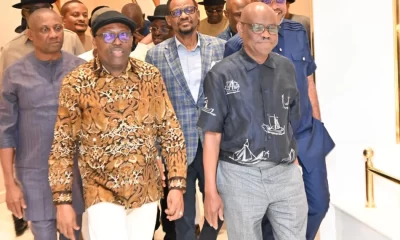In the realm of economic policymaking, few moments are as pivotal as the ones Nigeria finds itself in today. President Bola Ahmed Tinubu’s administration has taken the reins with a series of reforms that have sent ripples of optimism through the nation. From the removal of fuel subsidies to the unification of exchange rates, these policies have been designed to drive long-term economic stability and growth.
One of the most significant reforms has been the removal of fuel subsidies. This move, though initially met with resistance, has proven to be a game-changer. By eliminating subsidies, the government has reduced its expenditure leakages, allowing for more strategic allocation of resources. This decision has also led to a more efficient use of resources, as the market dictates the price of fuel, thereby reducing the burden on the government’s coffers.
The unification of exchange rates has been another cornerstone of the administration’s economic policy. This move has brought about a more transparent forex market, where the naira’s value is determined by market forces. The result has been a significant reduction in arbitrage opportunities, which previously allowed a few privileged individuals to profit at the expense of the nation’s economy. With a unified exchange rate, businesses can now plan and operate with greater certainty, knowing that the exchange rate is reflective of the market’s true value.
The impact of these reforms is evident in the nation’s economic indicators. According to the World Bank, Nigeria’s economy grew at its fastest rate in nearly a decade in 2024. The nation’s trade balance has also seen a significant improvement, rising from N20 billion to N5.7 trillion between the first quarter of 2023 and the first quarter of 2025. This substantial growth is a testament to the administration’s commitment to economic reform and its positive impact on the nation’s economy.
The increase in average oil production from 1 million to 1.8 million barrels per day from May 2023 to July 2025 has also contributed significantly to the country’s economic growth. This growth in oil production has not only increased revenue but also positioned Nigeria as a more reliable partner in the global energy market.
Infrastructure development has also been a key focus area for the administration. The 700-kilometre Lagos-Calabar coastal road and the newly commissioned Keffi-Akwanga-Lafia-Makurdi highway are just a few examples of the massive investments being made in the nation’s infrastructure. These projects will not only improve connectivity but also facilitate trade and commerce, driving economic growth and development.
The signing of the Electricity Act of 2023 has decentralized the power sector, allowing states to generate and distribute their own electricity. This move has the potential to revolutionize the power sector, providing much-needed relief to businesses and households that have long suffered from erratic power supply. With states now empowered to take charge of their own power generation and distribution, Nigeria could soon see a significant improvement in power supply, driving economic growth and development.
In the realm of social welfare, the administration’s commitment to education is evident in the Student Loan Scheme. This initiative has benefited over 300,000 students, providing them with financial support to pursue their education. In Ekiti State, NELFUND has disbursed N549.2 million to beneficiaries, highlighting the administration’s commitment to education and social welfare. This investment in human capital will undoubtedly yield long-term benefits for the nation, as a more educated population drives innovation and economic growth.
The administration’s commitment to fiscal discipline is also worth noting. Nigeria’s total public debt fell from $113.42 billion in 2023 to $94.22 billion in 2024, a reduction that experts interpret as a sign of growing economic resilience and recovery. The collective repayment of N1.85 trillion in domestic debt by 33 states and the Federal Capital Territory is another positive development, leading to a substantial drop in the country’s subnational debt stock.
While challenges persist, President Tinubu’s reforms have undoubtedly put Nigeria on a path of sustainable growth. The administration’s commitment to fiscal stabilization, public investment, social welfare expansion, sector diversification, and institutional rebuilding has yielded positive results. As the country continues to navigate its economic journey, it is essential to build on the progress made so far and address the remaining challenges to ensure a brighter future for Nigerians.
In conclusion, President Tinubu’s reforms have been a breath of fresh air for Nigeria’s economy. The removal of fuel subsidies, unification of exchange rates, investment in infrastructure, and commitment to social welfare and fiscal discipline have all contributed to a more stable and growth-oriented economy. As the nation looks to the future, it is clear that these reforms will have a lasting impact on Nigeria’s economic trajectory, driving growth, stability, and prosperity for generations to come.
Matthew Adebisi writes from Lagos Nigeria and can be reached via: madewal52@gmail.com or 07058762577


























